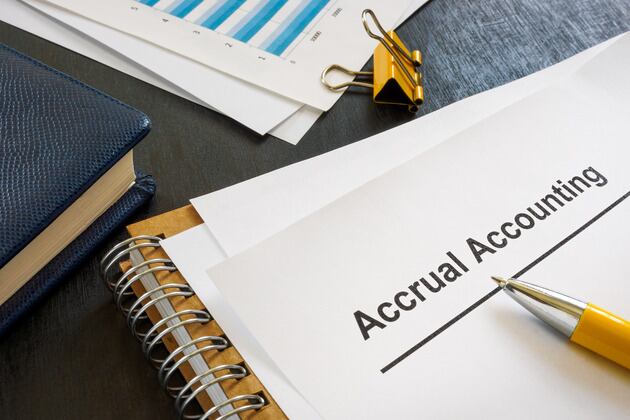What Is Bookkeeping? Definition, Types, and Importance of Bookkeeping
April 19, 2024

Bookkeeping is about more than writing down money in and money out. It covers everything from payroll to taxes to invoicing. And when you do it right, you set the rest of your business up for success.
So, what is bookkeeping? And how do you use it effectively? Here’s a guide to the basics.
What Is Bookkeeping?
Bookkeeping is the process of recording and organizing financial transactions. It takes note of sales, expenses, and payments. And it uses that information for other purposes, like creating invoices and writing documents.
Bookkeeping is the basis for a business’s financial statements. It shows you dollars in and dollars out at the same time. You can use that information to assess your budget, set goals, and plan ahead.
Most businesses have bookkeepers who do these tasks. These professionals record transactions in software or ledgers.
Types of Bookkeeping

Bookkeeping approaches vary by a business’s type and size. Here are two approaches to know:
Single-Entry Bookkeeping
This kind of bookkeeping involves a simple ledger. Each transaction is recorded just once. Small businesses often use this type because it’s simpler and uses fewer resources.
Double-Entry Bookkeeping
So, what is double-entry bookkeeping? It’s more thorough. It involves recording financial transactions twice: once as a debit and once as a credit. This system makes sure the accounting equation always stays in balance: Liabilities + equity = assets.
Big businesses tend to prefer this method. It creates more accurate financial statements and reports.
What Do Bookkeepers Do?
Here’s an overview of a bookkeeper’s main tasks:
1. Record Transactions
Bookkeepers record all financial transactions. They usually use accounting software and spreadsheets to track everything.
2. Generate Invoices and Receive Payments
Bookkeepers send customers invoices for goods or services. They also manage incoming payments. Their job is to make sure transactions are correct and timely.
RELATED ARTICLE — How To Offer Net 30 Terms (For Small Businesses & Contractors)
3. Track Debits and Credits
One of a bookkeeper’s main tasks is tracking debits and credits. Debits are money going out of an account, while credits are money coming in. This keeps the balance between assets, liabilities, and equity.
4. Manage the Payroll Process
Bookkeepers often calculate wages and file taxes. They make sure all activities follow the rules.
5. Organize Financial Documents
Bookkeepers make sure records are accurate and easy to access. These records include:
- Bank statements
- Credit card statements
- Receipts
- Invoices
- Payroll statements
- Tax filings
6. Spot Errors
Bookkeepers review records and reports for accuracy. They spot and fix mistakes. This makes sure information is correct so you can make informed decisions.
7. Create Essential Financial Statements
Bookkeepers create balance sheets and income statements. These show the business’s financial position and give you the information needed to make budgeting decisions.
8. Help Prepare and File Tax Returns
Bookkeepers help businesses comply with tax laws. They know relevant regulations and how to get money back with tax refunds.
What’s the Difference Between Bookkeeping and Accounting?

Bookkeeping, accounting—what’s with the separate terms?
Both bookkeepers and accountants help manage money. Each works to ensure accurate financial records and compliance. They just differ in their scope and knowledge.
An accountant is a financial pro. They typically have advanced degrees and are certified public accountants (CPAs). Most analyze data and give advice about money and taxes.
A bookkeeper focuses on daily tasks. These include keeping and organizing records. Bookkeepers understand the basics of accounting. But they may not have accountant-level expertise.
As a rule of thumb, bookkeepers focus on recording and organizing data. Accountants do higher-level financial analysis. Depending on its size and complexity, a business may need one or both.
RELATED ARTICLE — What Is Progress Invoicing and When Should You Use It?
5 Bookkeeping Best Practices
Here are some best practices for good bookkeeping:
1. Stick to a Time Limit
Set regular bookkeeping sessions. Assign specific times to update records. Consistency is the key to staying organized because it prevents a backlog.
2. Keep the General Ledger Current
Your general ledger is the backbone of your financial records. It documents all transactions in order. Update it often. It should reflect all your latest financial activities so you can make informed choices.
3. Plan for Taxes Throughout the Year
Avoid the last-minute rush by planning for taxes early. Keep detailed records of deductible expenses. This helps reduce your tax liabilities.
4. Use Accounting Software
Invest in bookkeeping or invoicing software like Invoice Simple. It can help you organize transactions and reduce the chance of errors.
5. Look at Accounts Often
Compare bank statements and other financial accounts. This helps you catch any errors or fraud quickly. It also shows whether your records match account balances. The faster you find discrepancies, the faster you can fix them and avoid bigger issues.
RELATED ARTICLE — How To Send an Invoice
FAQs

Here are some common questions about bookkeeping:
1. What Are the Major Components of Bookkeeping?
Bookkeepers record transactions. They organize data and prepare statements. They also reconcile accounts, manage payroll, and help with taxes.
2. What’s a Bookkeeping Job, and How Do You Become a Bookkeeper?
Bookkeeping jobs involve organization, reporting, and data entry. To become a bookkeeper, you should study accounting or bookkeeping. It also helps to get experience. This can be through internships or entry-level jobs.
Getting certified can help you land a job. Become a Certified Bookkeeper (CB) or Certified Public Bookkeeper (CPB). This tells potential employers you have all the skills you need to do the job.
3. How Can I Find a Reliable Bookkeeper?
Here are some ways to find a solid bookkeeper in your area:
- Seek referrals
- Ask other business owners
- Look in online directories
- Look in local directories
- Try freelance platforms
- Use a bookkeeping firm
4. How Do Bookkeepers Communicate?
Most bookkeepers use email, phone calls, and online messaging. If you work with a bookkeeping firm, it might use a client portal.
5 Quick Tips To Know About Bookkeeping
If you’re not a bookkeeper but have to track your finances, here are some quick tips to help you:
1. Separate Personal and Business Finances
Get separate bank accounts and credit cards for your business and personal expenses. This means all business expenses will be in one place. It’s easier to track money and prepare taxes.
2. Track All Expenses
Record and categorize business expenses based on their type and purpose. This helps you see how you spend your money. You may find chances to save and maximize tax deductions.
Tracking expenses makes sure you have a clear understanding of your cost of doing business. This lets you make informed financial decisions. You can also budget better for future costs.
3. Do Regular Reconciliation
Check your business bank and credit card statements often. Compare your financial records with your bank’s. The goal is to find and fix any errors or inconsistencies. This is also known as reconciliation.
Reconciliation helps you track money and avoid mistakes. It gives you a reliable picture of your business’s health.
4. Stay Organized
Organize all financial documents and make them easy to access. Use folders, digital filing systems, or accounting software. Choose any system that works for you.
This organization is key to efficient bookkeeping. It lets you quickly find the documents you need. It also helps you keep and produce records for taxes and reports.
5. Get Professional Help When You Need It
You can handle basic bookkeeping tasks yourself. But get help for complex finances.
Hiring a bookkeeper or accountant can give helpful insights. It frees up resources so you can focus on growing your business. It also ensures that your financial records are accurate and compliant.
For Easy Expense Tracking, Use Invoice Simple’s In-App Receipt Scanner
You don’t always need a bookkeeper to track expenses. Invoice Simple makes it easy to document transactions. The in-app receipt scanner lets you record expenses with the push of a button.












